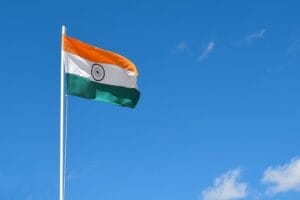🔍 Topic: Borderlines and Tariffs: Navigating U.S.–Canada Trade Tensions
🟡 Introduction & Context
In early 2025, the U.S. government, citing national security concerns and trade imbalances, announced sharp 25% tariffs on Canadian steel and aluminum—prompting swift retaliatory duties by Canada on U.S. goods. The Hindu editorial titled “Too Close for Comfort: On America’s tariff and U.S.–Canada ties” explores these actions, highlighting how such protectionist measures strain deeply integrated economies and redefine long-standing geopolitical relationships.
Though primarily focused on U.S.–Canada dynamics, the piece resonates with India, which faces similar tariff threats. It speaks to broader themes of protectionism, WTO commitments, and the need for responsible diplomacy—all crucial in a multipolar world.
🔵 Constitutional & Policy Context (Relevant to India)
While India’s Constitution doesn’t directly address foreign trade, it emphasizes:
Article 246 & Entry 33, Union List: Empower Parliament to legislate on “foreign trade.”
Article 301–307: Ensure freedom of trade, commerce, and intercourse within the country—principles that influence external trade policy.
India’s role in WTO and adherence to trade pacts reflect constitutional commitments to economic governance under Article 51(c) (promoting international peace and security).
👉 Hence, India must balance tariff actions with its constitutional mandate to maintain an open and fair trade environment.
🟢 Key Points From the Editorial
Economic Interdependence: U.S. and Canada exchange nearly $1 trillion of goods annually, making abrupt tariffs disruptive.
Diplomatic Fallout: Steel and aluminum duties—framed as national security—erode trust between allies.
Consumer & Business Impact: Tariffs raise domestic prices, harm integrated supply chains, and depress investor confidence.
Retaliatory Risk: Canada imposed matched duties, indicating the potential for a damaging trade war.
Global Lesson: Other economies, including India, must tread cautiously when using tariffs; multilateral diplomacy and WTO compliance are essential.
📚 Hard Word Meanings (English → Hindi)
| Term | English Meaning | Hindi Translation |
|---|---|---|
| Protectionism | Shielding local industries via tariffs | संरक्षणवादी नीति |
| Retaliatory Tariff | Tariff imposed in response to another country’s tariff | वाणिज्यिक प्रतिशोध दर |
| Interdependence | Mutual reliance between economies | परस्पर निर्भरता |
| Supply Chain | Process of producing and delivering a product | आपूर्ति श्रृंखला |
| Diplomatic Fallout | Negative political consequences between nations | कूटनीतिक परिणाम |
🎯 8 MCQs for UPSC, SSC, UPPSC, RRB
Under which article can Parliament legislate on foreign trade?
A. Article 246 ✅
B. Article 301
C. Article 19
D. Article 21What tariff did the U.S. impose on Canadian steel and aluminum?
A. 10%
B. 15%
C. 25% ✅
D. 40%A retaliatory tariff is:
A. Tax on imported raw materials
B. Tax imposed in response to another country’s duties ✅
C. Subsidy to domestic manufacturers
D. Export incentiveWhich of the following reflects India’s constitutional duty toward global peace?
A. Article 301
B. Article 51(c) ✅
C. Article 246
D. Article 19(1)(g)U.S.–Canada annual trade volume is roughly:
A. $100 billion
B. $500 billion
C. $1 trillion ✅
D. $2 trillionProtectionist policies may lead to:
A. Lower domestic prices
B. Poorest wage growth
C. Trade wars and reduced consumer welfare ✅
D. Increased foreign investmentArticle 301–307 of Indian Constitution relate to:
A. Right to education
B. Freedom of trade within India ✅
C. Distribution of legislative powers
D. Fundamental dutiesWhat global framework guides tariff disputes?
A. IMF
B. OPEC
C. WTO ✅
D. SAARC
🌍 Importance for Aspirants
- GS II & III: Covers trade policy, constitutional economic provisions, WTO, and global diplomacy.
- Economics: Highlights real-world impacts of tariffs on prices, supply chains, and macroeconomic stability.
- Ethics & Governance: Raises debate on balancing national interests vs global cooperation.
The Hindu Editorial Analysis 11 July 2025 – Key Notes & MCQs for UPSC & SSC (11 July 2025)
📰Today The Hindu Editorial Analysis UPSC– Daily Key Notes, MCQs & PDF for UPSC & SSC Aspirants
The Hindu PDF News Analysis Notes | The Hindu PDF Download 14 July 2025
The Hindu PDF News Analysis Notes | The Hindu PDF Download 14 July 2025


